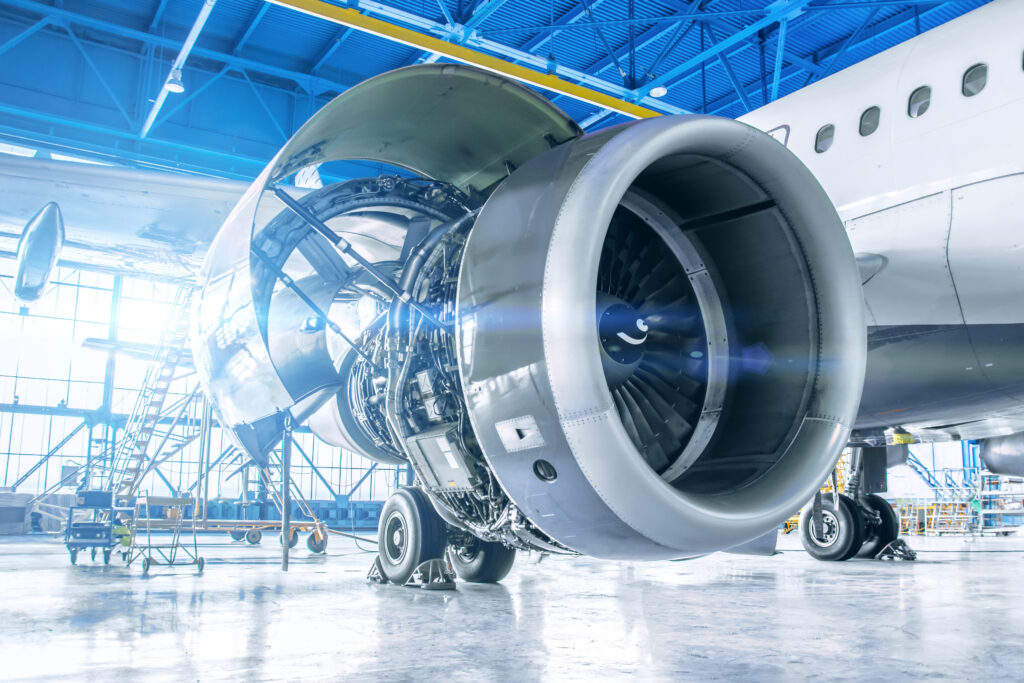
Reducing weight in aircraft design has always been a priority for the aerospace industry. Every kilogram saved translates into greater fuel efficiency, lower emissions, and longer range. While titanium and aluminium have been mainstays in aerospace fasteners, the demand for even lighter and more advanced materials is pushing magnesium alloys into the spotlight.
At JP Aero, we work with innovative materials to deliver fastening solutions that meet the toughest aerospace standards. Magnesium alloys, aluminium-lithium fasteners, and other advanced metals are part of our commitment to lighter, stronger, and more durable aircraft.
Why Magnesium Alloys Matter in the Aerospace Industry
Magnesium alloys are the lightest structural metals used in engineering. Their low density provides immediate advantages in applications where every gram counts. For fasteners, this means aerospace magnesium bolts and screws can reduce overall weight while still delivering the durability and performance expected in the aerospace sector.
But magnesium alloys aren’t just about weight. They bring a unique balance of mechanical properties — from high stiffness-to-weight ratio to damping capacity — making them well-suited to aerospace applications that demand both efficiency and resilience.
Mechanical Properties and Corrosion Challenges
Performance magnesium alloys must meet strict aerospace requirements, including high mechanical strength, fatigue resistance, and durability. The main obstacle to their wider adoption has been corrosion. Left unprotected, magnesium alloys are more susceptible to environmental degradation than aluminium alloys or titanium.
This is where advances in materials science are critical. Modern alloys incorporate elements such as zinc, rare earths, and manganese to improve corrosion resistance. Surface treatments, coatings, and precision processes such as sand casting and controlled machining also play a role in delivering aerospace-ready magnesium alloy parts.
Today’s magnesium alloys can be engineered to withstand the harsh conditions of aerospace environments — from extreme temperatures to humidity and salt exposure — ensuring long-term reliability.
Aerospace Magnesium Bolts: From Theory to Practice
For years, magnesium fasteners were limited to research labs and prototypes. Now, aerospace magnesium bolts are moving into real-world applications. Non-critical structures such as interior components, housings, and secondary fixings are proving ideal for magnesium alloy parts, where weight reduction delivers measurable efficiency without compromising safety.
As coatings and corrosion protection continue to improve, the aerospace industry is exploring broader use of magnesium bolts across aircraft systems. For fastener suppliers and manufacturers, this shift signals a growing share of demand for lightweight, high-performance alloys.
Aluminium-Lithium Fasteners and Alloy Innovation
Magnesium isn’t the only material reshaping fastener design. Aluminium-lithium fasteners are another example of alloy innovation driving efficiency in the aerospace sector. By reducing density and increasing stiffness, aluminium-lithium alloys offer a significant upgrade over traditional aluminium alloys.
In practice, aluminium-lithium fasteners improve fatigue life, lower weight, and enhance fuel efficiency — all essential goals for modern aerospace applications. When combined with magnesium fasteners, they give engineers more tools to match materials with performance requirements, ensuring the right balance of strength, durability, and corrosion resistance across different parts of the aircraft.
Corrosion Resistance and Durability in Alloys
One of the aerospace industry’s core concerns is long-term durability. Corrosion can shorten the service life of even the most advanced fasteners, leading to higher maintenance costs and safety risks. Magnesium alloys have historically lagged behind aluminium alloys and titanium in this regard, but new generations of alloys are narrowing the gap.
Protective coatings, anodising, and hybrid designs are allowing magnesium fasteners to deliver both lightness and longevity. For aerospace applications, this means operators can benefit from weight savings without compromising the durability that defines aerospace standards.
Efficient Solutions for the Aerospace Sector
The aerospace sector is under constant pressure to deliver more efficient solutions. From lowering emissions to reducing fuel burn, lightweight materials play a decisive role in the performance of modern aircraft. Magnesium alloys, aluminium-lithium fasteners, and other advanced metals are proving critical in this transition.
By choosing the right alloy for each application, manufacturers can optimise weight, corrosion resistance, and mechanical properties to achieve the best possible outcome. The result: a stronger, lighter, and more sustainable aerospace industry.
The Future of Magnesium Alloys in Aerospace Applications
Magnesium alloys are still emerging in aerospace fastener design, but their potential is undeniable. With continuing advances in corrosion protection, improved alloy compositions, and proven performance, magnesium fasteners are moving from experimental use to practical adoption across the aerospace industry.
At JP Aero, we support this evolution by supplying a wide range of aerospace fasteners, including aluminium, titanium, and high-performance alloys. As magnesium alloy parts become a greater share of future aerospace materials, we’re ready to deliver fasteners that meet the highest standards of safety, compliance, and performance.
Conclusion
Magnesium alloys in aerospace applications represent the next step in lightweight engineering. From aerospace magnesium bolts to aluminium-lithium fasteners, the industry is embracing new alloys that deliver durability, corrosion resistance, and unmatched weight savings.
Innovative Fasteners for Next-Generation Aerospace Applications
Looking for lightweight fasteners engineered for performance? Contact JP Aero to discuss magnesium alloys, aluminium-lithium fasteners, and other advanced materials for your next aerospace project.
